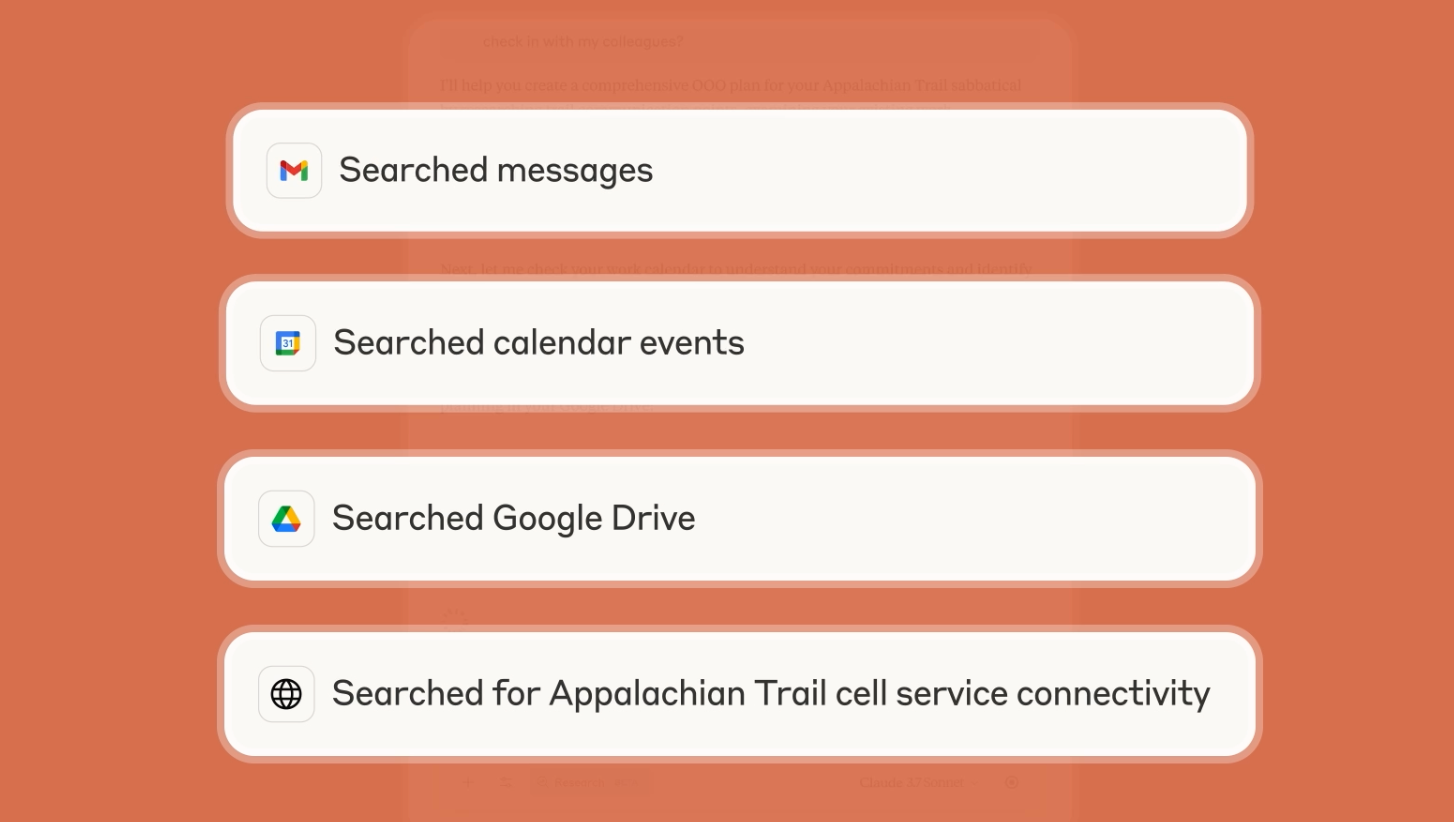OpenAI Plans Social Network to Rival X
OpenAI is developing a social network that could shake up the AI landscape. The project centers on ChatGPT's image generation and includes a social feed, according to sources close to the matter.
Claude just got a major upgrade that transforms how it finds and uses information. The AI assistant now searches the web and connects with Google Workspace, making it a more capable research partner.

The new Research feature lets Claude search the web and work documents to answer complex questions. Unlike basic search tools, Claude builds its searches step by step, digging deeper into topics that need more investigation. It backs up its findings with citations, so users can check its work.
The Google Workspace integration connects Claude to Gmail, Calendar, and Google Docs. This means it can pull information from your emails, calendar events, and documents without needing manual uploads. The system maintains security while giving Claude access to your work context.
These tools shine in real-world scenarios. Marketing teams can use Claude to gather competitive research while pulling internal strategy documents. Sales teams can prep for client meetings by having Claude scan past emails and meeting notes while checking the latest company news. Engineers can analyze system specs and documentation to plan technical solutions.
For students, Claude can analyze course materials and search academic resources to create study plans. Parents can use it to track family commitments and check local events that might affect schedules.
Enterprise users get additional features. Administrators can turn on document cataloging, which helps Claude find information buried in long documents or scattered across files. The system uses secure retrieval techniques to search company documents while keeping data private.
The research capability stands out for its speed and depth. Claude can tackle multiple research tasks throughout the workday, delivering thorough answers in minutes. It doesn't just search - it thinks through problems and explores different angles automatically.
Consider a product launch scenario: Claude can check competitor moves, analyze market trends, and pull relevant internal documents about product specs and positioning. Instead of spending hours gathering this information manually, teams get comprehensive insights they can act on quickly.
For meeting prep, Claude saves time by combining calendar data, email threads, and relevant documents. It can identify action items from past meetings and gather context for upcoming discussions. This lets people focus on strategy instead of hunting through old emails.
The system works similarly for technical planning. Engineers can have Claude analyze documentation, check implementation patterns, and review security standards. This speeds up solution design while ensuring nothing gets missed.

These features mark a shift in how AI assistants handle information. Instead of relying on users to provide context, Claude actively gathers what it needs. The step-by-step research approach means it can tackle complex questions that need multiple layers of investigation.
The rollout starts with Max, Team, and Enterprise plans in the US, Japan, and Brazil. Web search is now live in these regions for paid plans. The Google Workspace integration is in beta for all paid users, though admins need to enable it first.
Anthropic, Claude's creator, plans to expand these features. They'll add more content sources and enhance Claude's research abilities in coming weeks. The current release focuses on core business needs, but the potential applications span many fields.
This update reflects a broader trend of AI systems becoming more capable researchers and collaborators. By connecting to both internal and external information sources, they can provide more context-aware and useful assistance.
Why this matters:
Read on, my dear:
Fuel your morning with AI insights. Lands in your inbox 6 a.m. PST daily. Grab it free now! 🚀